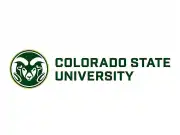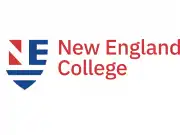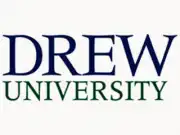Science and Engineering Programs in the USA for International Students
- Advantages of Studying Natural and Exact Sciences Programs in the USA
- Formats and Levels of Natural and Exact Sciences Programs in the USA
- Top Universities for Natural and Exact Sciences in the USA
- How to Apply to Natural and Exact Sciences Programs in the USA
- Required Documents for Natural and Exact Sciences Programs in the USA
- Tuition Fees for Natural and Exact Sciences Programs in the USA
- Scholarships and Grants for Natural and Exact Sciences Programs in the USA
- Career Prospects and Internships after Studying Natural and Exact Sciences in the USA
- FAQ – Frequently Asked Questions

Master of Science - Environmental Leadership
Colorado State UniversityThe Master of Science in Environmental Leadership equips leaders to tackle complex conservation challenges at local, regional, and global levels. The curriculum is founded on the ideas of experiential learning, interdisciplinary training, and applied methodologies. Students collaborate with an academic…

Master of Science - Cell and Molecular Biology
Colorado State University
Master of Science - Geosciences
Colorado State UniversityThe Master of Science in Geosciences program offers best-practices training for employment in key geoscience domains, and it is a common working degree for many energy, environmental, natural resource, regulatory, and other professional occupations. Each graduate student follows a specific schedule…

Bachelor of Science - Biology
New England CollegeBoth in your classrooms and in federally supported research labs, you will be confronted with practical learning opportunities and numerous chances to practice real science. A year-long research project is completed by all biology majors. At regional undergraduate conferences and even worldwide scientific…

Bachelor of Science - Biotechnology
New England CollegeWith a bachelor's degree in biotechnology, you may learn how to use science to improve society on all scales, from the global to the local. The curriculum's wide range of disciplines can help you get ready for jobs in industries like agriculture, energy, medicine, and the environment.
Learning…

Bachelor of Science - Biochemistry and Molecular Biology
Drew UniversityThe subjects of biochemistry, molecular biology, biomedicine, and bioengineering are all areas that you could be interested in pursuing a career in. Are you interested in attending prestigious graduate institutions such as Brown, Columbia, Dartmouth, or the University of North Carolina? Beginning…

Bachelor of Science - Biology
Drew UniversityThe biology major allows students to examine the biological foundation of life from a variety of viewpoints, including ecosystems, organisms, cells, and molecules. Active, inquiry-based learning, which includes classroom and laboratory experiences, is an important component of our curriculum because…

Bachelor of Science - Mathematics
Drew UniversityMathematics stands at the core of the liberal arts. Based on abstraction and logical reasoning, mathematics is both a body of knowledge and an elegant and practical method of understanding our reality. Through mathematics, we may condense and characterize the otherwise hidden patterns and interactions…

Bachelor of Science - Neuroscience
Drew UniversityDrew's neuroscience bachelor allows students to investigate the brain from a variety of perspectives, including biology, chemistry, computer science, philosophy, physics, and psychology. And, with hands-on laboratory and research experiences, as well as Drew's one-of-a-kind RISE program, students…

Bachelor of Arts - Physics
Drew UniversityFrom the structure of the cosmos to light, atoms, and fundamental particles, Drew’s physics curriculum covers it all with an eye toward flexibility to meet student interests and ambitions. Speaking of aspirations, around 75 percent of our great physics students (think national scholarships and prizes)…
Advantages of Studying Natural and Exact Sciences Programs in the USA
The USA is a global leader in the field of natural and exact sciences. The country's universities offer advanced educational programs that combine fundamental knowledge with practical training and innovation. International students choose the USA for its unique development opportunities, modern laboratories, research grants, and close collaboration with industrial companies and scientific institutes.
Why Choose the USA:
- Quality of Education: American universities are ranked among the top in global rankings (e.g., QS and THE) due to their high academic standards.
- Research Base: More than 70% of scientific research at universities is funded by the government and private companies.
- Flexible Program Structure: The ability to choose courses in various fields and tailor the program to your interests.
- International Recognition of the Degree: Graduates of American universities are in demand worldwide.
- Innovative Environment: Technology hubs such as Silicon Valley and the Boston science cluster create opportunities for internships and startups.
Formats and Levels of Natural and Exact Sciences Programs in the USA
The US education system offers various levels of training suitable for recent high school graduates as well as those who already have higher education.
Main Program Levels:
- Undergraduate (Bachelor's): 4 years of study. Upon completion, a Bachelor of Science (BS) degree is awarded in the selected field.
- Graduate (Master’s): 1–2 years. Master of Science (MS) degree.
- PhD (Doctorate): 4–6 years. Includes coursework, exams, and research work.
Study Formats:
- Full-time
- Part-time
- Online programs, including blended
- Certificate and short-term programs — for deepening knowledge in a specific area
Top Universities for Natural and Exact Sciences in the USA
Below are leading, yet realistically accessible universities for international students:
| University | Specialization | Acceptance Rate |
|---|---|---|
| University of California, Berkeley | Chemistry, Physics, Biology, Mathematics | ~15% |
| University of Illinois Urbana-Champaign | Computer Science, Mathematics | ~63% |
| University of Wisconsin–Madison | Biology, Ecology, Engineering | ~57% |
| Georgia Institute of Technology | Physics, Applied Mathematics | ~36% |
| Pennsylvania State University | Earth Sciences, Chemical Engineering | ~56% |
How to Apply to Natural and Exact Sciences Programs in the USA
- Select a university and program.
- Take exams: SAT/ACT for undergraduate, GRE/GMAT for graduate, IELTS/TOEFL/Duolingo to prove English proficiency.
- Prepare documents.
- Submit the application through the university website or CommonApp.
- Interview (if required).
- Await decision.
Application deadlines: from October to January (for fall intake).
Required Documents for Natural and Exact Sciences Programs in the USA
- High school diploma or bachelor's degree (with notarized translation and certification)
- Academic transcript
- Exam certificates (SAT, GRE, TOEFL, etc.)
- Recommendation letters (2–3)
- Motivation letter or essay
- Resume (for graduate and doctoral programs)
- Portfolio (for technical disciplines or research)
Cost of Studying Natural and Exact Sciences Programs in the USA
| Type of Institution | Annual Cost (USD) |
|---|---|
| Public University (in-state) | $15,000 – $25,000 |
| Public University (out-of-state) | $25,000 – $40,000 |
| Private University | $40,000 – $70,000 |
Additional Expenses:
- Housing and meals: $10,000 – $15,000 per year
- Health insurance: $1,000 – $2,000
- Study materials and transport: $1,000 – $2,500
Scholarships and Grants for Natural and Exact Sciences Programs in the USA
Funding Options:
- Government:
Full-grant foreign student programs — for master’s and PhD - University-based:
Merit-based and Need-based scholarships
Assistantships (Graduate assistant / Research assistant) - Corporate:
Google Scholarship
IBM PhD Fellowship
Selection Criteria:
- High academic performance
- Active participation in research
- Social involvement, leadership
Deadlines:
From October to February depending on the program
Career Prospects and Internships after Studying Natural and Exact Sciences in the USA
American universities provide strong career support:
- Career centers help with resumes, job search, and interview preparation
- Internship and co-op programs as part of studies
- Optional Practical Training (OPT): up to 12 months of internship, up to 36 months for STEM fields
Popular employers of graduates:
- NASA
- Amazon
- Pfizer
- Intel
FAQ – Frequently Asked Questions
- Can I apply without SAT/GRE to Natural and Exact Sciences Programs in the USA?
Yes, some universities have waived mandatory exams. However, submitting scores can increase your chances of admission and scholarships. - How difficult is it for international students to get accepted to Natural and Exact Sciences Programs in the USA?
The competition level is high, especially at top universities. But with solid preparation and strong application documents, admission is entirely possible. - Which fields are the most promising in Natural and Exact Sciences Programs in the USA?
Data Science, Biotechnology, Artificial Intelligence, Ecology, and Sustainable Development. - What is the minimum English proficiency required for Natural and Exact Sciences Programs in the USA?
Minimum required: TOEFL 80+, IELTS 6.5+, or Duolingo 110+ in some cases. - Can I work while studying in Natural and Exact Sciences Programs in the USA?
Yes, up to 20 hours per week on campus during semesters and up to 40 hours during breaks. - What is STEM and why is it important in the USA?
STEM — Science, Technology, Engineering, Mathematics. STEM programs allow for extended internships under the F-1 visa in the USA. - When should I start preparing for admission to Natural and Exact Sciences Programs in the USA?
Preferably 12–18 months before your intended start date to have enough time for exams and document preparation. - What careers are available after graduating from Natural and Exact Sciences Programs?
In-demand careers include Data Analyst, Research Engineer, Chemist, Bioinformatician, Sustainability Specialist, Research Scientist, and others. - How do I choose a major in Natural and Exact Sciences if I’m still undecided?
The US system allows you to enroll in a general track (e.g., General Science) and choose a specialization by the 2nd–3rd year. This gives time to explore disciplines like biology, physics, ecology, and mathematics before deciding. - Does participation in research projects and competitions affect admission to Natural and Exact Sciences Programs in the USA?
Yes, especially for top universities. Participation in scientific conferences, publications, and winning academic competitions can significantly strengthen your application by demonstrating motivation and academic engagement.